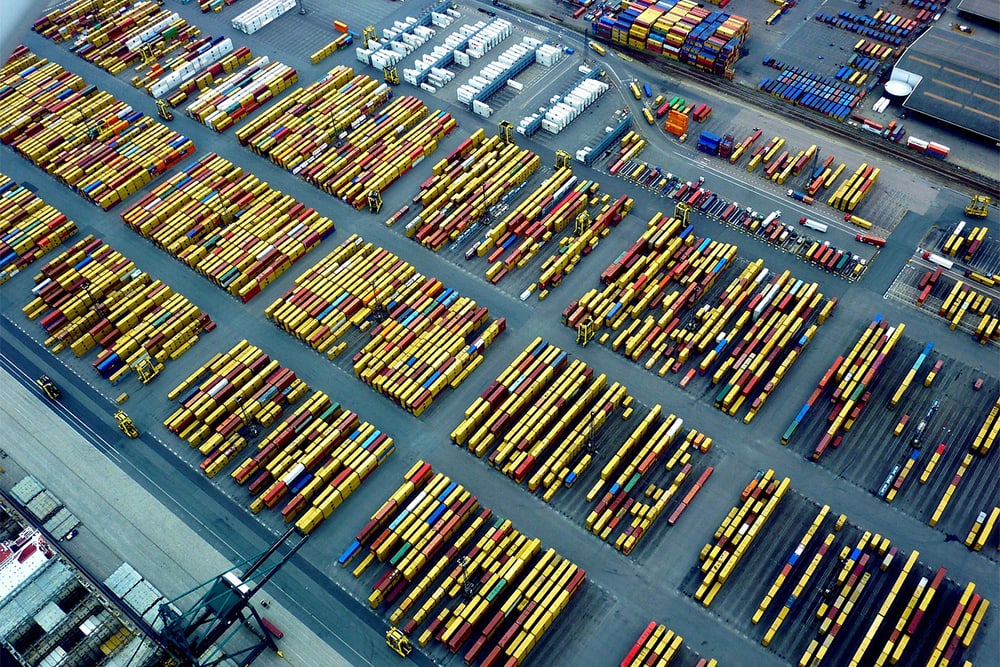
Transport and Logistics financial health check: 2023, first signs of a "slowdown"?
As it does every year and by good custom, UPTR commissioned an in-depth study on the financial health of the transportation sector, this year integrated with the Logistics sector.
The audit and financial expertise firm BDO has therefore scrutinized the annual accounts (filed with the NBB at the end of July 2024) of Belgian companies whose main NACE code is code "494 - Road freight transport and removal services," as well as the (logistics) codes "521 - Warehousing and storage facilities" and "522 - Complementary services for transport."
1. Indicators of liquidity.
If overall liquidity continues to improve in 2023, the average customer payment term will be even tighter, reaching 51 days (which is 4 days less than 4 years ago), which is in line with the term used by suppliers (48 days in 2023).
Thus, players in the "Transport and Logistics" sector in 2023 pay their trade debts 3 days earlier than they collect their receivables, leading to an increase in the cash reserve necessary for the proper functioning of their business cycle.
2. Indicators of solvency.
In 2023, the sector's solvency ratio (i.e., the ratio of equity to total assets) remains stable at 42%, still below the Belgian average (across all sectors). While this debt can take advantage of financial leverage (especially during periods of low interest rates), it may put some players at risk today, with an average sectoral financing cost of around 4% in 2023 (compared to 2% in 2022).
In addition, the number of transportation and logistics companies with negative equity increases in 2023, which could indicate a "weakness" in the balance sheet of some players.
3. Indicators of profitability.
The sector's EBITDA margin, which reached record levels in 2020 and 2021 (thanks in particular to the boost from online trading, further strengthened during the Covid period), seems to suffer from the inflationary context since 2022.
In 2022, the increase in overhead costs (electricity, fuel, rent...) was the main factor reducing the margin of companies in the transportation and logistics sector. In 2023, these general costs stabilize, but personnel costs increase by more than 10%.
In the sector, return on capital employed reached a record level in 2021, reflecting the high operational performance in the Covid period. In 2023, this profitability deteriorated slightly due to higher operating and financial costs.
Alexi Vangerven (Partner) and Jens Bosmans (Senior Manager) of BDO summarize this financial balance sheet : "[...] coming out of a Covid period in which its operations have "strengthened," the transportation and logistics sector is showing some signs of slowing in 2023. The causes are mainly stagnant sales, margins eroded by the increase in personnel costs (+10% approximately), a slowdown in investment mainly due to the rise in interest rates and a shrinking labor market. So the concerns expressed last year about "sectoral resilience being tested in 2023" are actually reality. [...]"
Michael Reul, General Secretary of UPTR, adds: "Last year's dual BDO report on the transportation sector and then the logistics sector showed the clear connection between companies operating in these two business segments. Transportation and logistics are the two sides of the same coin. There is one sector: the T&L sector and it follows the fluctuations of other parts of the economy. A slowdown in the economy immediately affects transportation volumes and logistics activities. Our new and future Belgian political leaders cannot ignore the current economic situation. The numbers speak for themselves and they are not positive. This is not the time for tax increases, but for supporting SMEs in the transition to sustainable energy, in a generally gloomy context."
About UPTR
As a recognized national professional federation, UPTR has defended the economic interests of the transport and logistics sector in Belgium since 1937. The trade association constructively represents self-employed people and companies in lobbying dossiers on economic, fiscal, social and environmental issues. UPTR is the central point of contact for as many as 2,300 companies from the transport and logistics sector in Flanders, Brussels and Wallonia. The national professional federation transparently informs its members about developments in the sector through its own magazine and new flashes. Moreover, UPTR offers its members a whole amalgam of services, such as legal advice, collection of professional diesel excise duties and VAT, supply of CMR waybills and badges and payment cards for toll roads.
About BDO
BDO Belgium is an internationally active consulting organization with a solid reputation in financial services (Audit & Assurance, Tax & Legal, Accounting & Reporting) and complementary, specialized advice to support clients towards future-proof digital and sustainable growth (Advisory). BDO Belgium operates from 12 offices and relies on a strong international network with an expert team of more than 110,000 partners and employees active in 164 countries.




